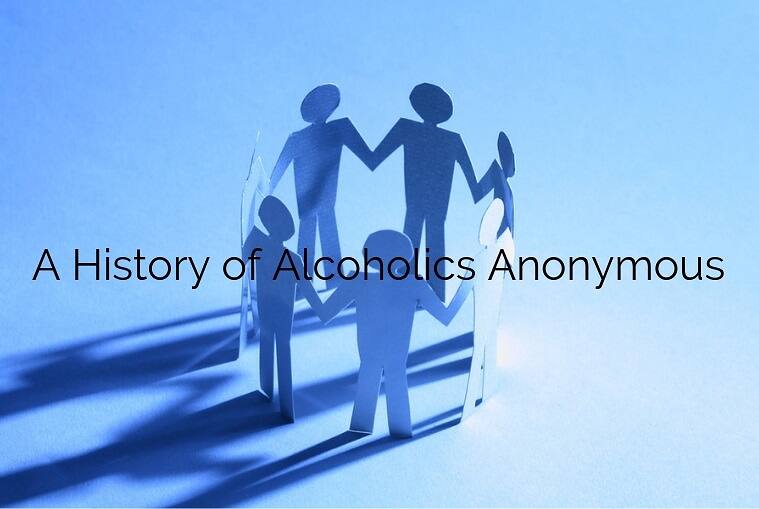
What is Alcoholics Anonymous?
The first known meeting of Alcoholics Anonymous in Great Britain was held in London on 31 March 1947. Read on for more about the history of Alcoholics Anonymous and how the 12-step programs we now know came into existence around the world.
If you are ready to take up the fight against alcoholism, AA meetings can show you that you are not alone. They can offer you a haven where you can speak to other men and women who feel they have lost control of their alcohol consumption. They feel alcohol addiction has taken over their lives and have come to AA to find an escape. However, AA believes that by meeting with other alcoholics and discussing your problems regularly, you could get to the very heart of your alcohol addiction. This could lead to a breakthrough that could help you break away from dependency and live a clean life, free from alcoholism.
The 12 Steps of Alcoholics Anonymous
Here are the 12 Steps
- We admitted we were powerless over alcohol–that our lives had become unmanageable.
- We came to believe that a Power greater than ourselves could restore us to sanity.
- Made a decision to turn our will and our lives over to the care of God as we understood Him.
- Made a searching and fearless moral inventory of ourselves.
- Admitted to God, to ourselves and to another human being the exact nature of our wrongs.
- Were entirely ready to have God remove all these defects of character
- Humbly asked Him to remove our shortcomings
- Made a list of persons we had harmed and became willing to make amends for them all.
- Made direct amends to such people wherever possible, except when doing so would injure them or others.
- We continued to take personal inventory and, when we were wrong, promptly admitted it.
- Sought through prayer and meditation to improve our conscious contact with God as we understood Him, praying only for knowledge of His will for us and the power to carry that out.
- Having had a spiritual awakening due to these steps, we tried to carry this message to alcoholics and practice these principles in all our affairs.
The History of Alcoholics Anonymous Success
The first big step in entering recovery is to recognise you have a problem with alcohol. If you have accepted that you may have an issue with alcoholism and wish to stop drinking, that is half the battle. You have already made an enormous leap forward by deciding to attend AA meetings in the first place.
Now, you can benefit from the empathy and support that have been central to Alcoholics Anonymous’s care since its inception. AA has championed the belief that you can overcome any obstacle or addiction by talking about your issues with people who have experienced them for themselves. This belief goes back to when the organisation was first created in the 1930s.
Alcoholics Anonymous was originally an offshoot of the Oxford Group, a non-secular organisation endorsing religious beliefs that rose to prominence in Europe and the USA in the early 1900s—established by Frank Buchman, a Christian missionary from the States who advocated giving one’s life to God, a concept that would prove to be a defining feature of AA’s lauded 12-step program.
In the early thirties, a man known as Rowland H, from Rhode Island, received treatment for his alcoholism by the Oxford Group, having been referred there by the famous psychiatrist Carl Jung from Switzerland, often called one of the fathers of psychotherapy. Jung believed the key to his recovery lay in Rowland H opening himself spiritually or experiencing a conversion. Rowland finally ceased consuming alcohol when he read about Frank Buchman and the organisation he founded, the Oxford Group.
A body that believes in paying forward, asking AA members to help others with alcoholism by bringing them into the fold. Rowland brought Ebby Thacher, or Ebby T, into the Oxford Group to help him stop drinking. Thacher, in turn, sought to bring in another friend, who would turn out to be a pivotal figure in the evolution of Alcoholics Anonymous.
Bill Wilson’s struggle with alcoholism
The history of Alcoholics Anonymous started in the autumn of 1934. William Griffith Wilson, who would come to be known as Bill W. He was not open to the idea of attending the Oxford Group, being a long-term alcoholic who believed he was beyond all hope. In December of that year, he received treatment at Towns Hospital in Manhattan for alcohol addiction, previously attending Oxford Group meetings at Calvary Rescue Mission. With the guidance and support of the Oxford Group, his stay in Towns led William Griffith Wilson to experience something of a spiritual awakening that he felt helped him overcome depression and stop drinking. Many feel the spiritual encounter may have been a by-product of drugs he may have taken in the course of his treatment. However, in the end, Bill W did indeed conquer his alcoholism and resolve himself to aid other sufferers.
Wilson and Smith
Bill W almost strayed during a business trip to Ohio in the American Midwest at the beginning of 1935. However, a local Minister put him in touch with Henrietta Seiberling, who worked with an Oxford Group in the area, who were trying to assist an alcoholic called Dr Bob Smith, or Dr Bob. This is the meeting that many believe laid the foundations of what was to be the AA the world knows today.
It seemed Bill W had found a kindred spirit with Dr Bob, Especially after he shared his experiences of addiction and related his belief that you can achieve and maintain sobriety following a spiritual encounter, as well as sharing your problems with someone who has lived through it themselves. Dr Bob had the distinction of being the first person who was freed from alcohol addiction with the assistance of William Griffith Wilson, also known as Bill W.
These two men’s lives had been torn apart by alcohol abuse. Still, together, they co-founded the AA organisation, which has helped millions of people worldwide conquer their alcohol dependency and is still going strong today.

The Big Book was originally written as a guide for people who couldn’t attend AA fellowship meetings, but it soon became a model for the program in general. It has since been adopted as a model for a wide range of addiction peer-support and self-help programs designed to help drive behavioural change. In addition to the original (AA) meetings, various offshoots now exist, such as Narcotics Anonymous(NA) meetings, Heroin Anonymous (HA) meetings, and Gamblers Anonymous (GA) meetings.
Alcoholics Anonymous today
Alcoholics Anonymous started in the UK in 1947 and is still going strong today. You can find AA meetings via AA’s UK website at Find at Meeting.
Since then, AA has grown and changed a lot. Membership has increased due to treatment centres bringing their patients and court-assigned meeting attendance. AA still advises against all alcohol consumption and focuses on moral character and personal change. But today, members are usually encouraged to find their own higher being that can help with their sobriety.
The Twelve Steps are a notable part of AA, walking an individual through the process of being sober for life. Part of that journey still consists of helping other members. Members who have been sober for a while may sponsor a newer individual. These people are paired up and can help each other when they feel like quitting. Moral support at AA meetings is one of its most useful tools.
Alternatives to AA, such as other 12-step programs, are SMART Recovery or Celebrate Recovery.
Sources
About-AA/What-is-AA
About-AA/AA-Traditions
AA-Meetings/Find-a-Meeting



